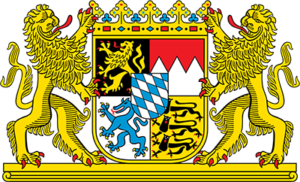Successful Economic Reception at IZB with Dr. Theo Waigel, Former Federal Minister of Finance, as Guest Speaker
September 11, 2023
The seasoned political scientist provided insights into how Germany can restore its competitiveness, reflecting on world history.

Dr. Peter Hanns Zobel, managing director IZB; Dr. Theo Waigel, Federal Minister of Finance (retired) (f.l.t.r.)
Martinsried, September 22, 2023 – The IZB in Martinsried hosted an outstanding economic reception on September 21, 2023, at the Faculty Club “Gateway to Biotech.” Nearly 100 guests from the fields of business, science, politics, and society participated in the event at IZB. Dr. Peter Hanns Zobel, Managing Director of IZB, presented the latest developments at IZB and on the Martinsried campus. Dr. Theo Waigel, former Federal Minister of Finance and renowned expert in the field of politics, delivered an engaging keynote address titled “Politics in Uncertain Times.” He elaborated on how Germany can regain its competitiveness in the international economic landscape. Co-organizer Kerstin Schreyer, former Bavarian Minister of Construction and Transport and Member of the State Parliament for the Munich South District as well as Chairwoman of the Committee for Economic Affairs, State Development, Energy, Media and Digitization was unable to attend due to her current cancer illness.
Dr. Zobel emphasized the significance of IZB for the biotechnology sector and stressed that IZB has played a central role in promoting innovation and progress since its establishment 28 years ago. With over 200 resident companies since its inception and financing, deals, and collaborations exceeding 5 billion euros since 2015, IZB boasts an impressive track record.
For example, Tubulis has developed a platform to create medications without side effects. Eisbach Bio, Catalym, and T-Curx are other start-ups researching innovative cancer therapies. Companies like Modag and Origenis are at the forefront of providing medications for neurodegenerative diseases such as Alzheimer’s and Parkinson’s.
Dr. Zobel concluded by highlighting the dynamic development of the Martinsried campus, which is set to receive substantial investments of at least 2 billion euros in the coming years to further enhance its impact and innovation capabilities.
“Unfortunately, I must also share some sad news today. Our co-organizer, Kerstin Schreyer, who contributed significantly to shaping this economic reception, cannot be with us today. She recently embarked on a brave battle against breast cancer and is currently undergoing treatment. Our thoughts are with her, and we sincerely wish her a speedy recovery,” stated Zobel. “Kerstin Schreyer has always shown a keen interest in IZB, regularly visiting our start-ups on-site and staying informed about their work. As Minister of Transport, she was also one of the driving forces behind the subway extension to Martinsried, which is now under construction and is very important for the IZB. She is an outstanding example of strength and determination, and we hope to welcome her back to IZB soon,” added Zobel.
In his keynote address, Dr. Waigel shed light on the challenging economic and political situation in Germany and provided valuable insights into political strategies. “Even in the German media, there is growing concern about whether Germany is becoming the ‘sick man’ of Europe again. Growth rates in France, Italy, Spain, and other EU countries are stronger than in Germany. It is a cause for concern when Switzerland is worried about Germany, Austria laments the significant ignorance regarding the impact of domestic policies on neighboring countries, Italy wishes for a rapid recovery in Germany, and the Netherlands fears losing its best ally in fiscal policy. Even in the UK, there is no gloating over Germany’s economic performance,” summarized Waigel the current situation.
Waigel stressed that as the largest economy and most populous country in Europe, Germany is compelled to take a leadership role, whether it likes it or not. “Germany’s conceptual contribution to a geo-economic strategy is indispensable. This includes a pragmatic China strategy that takes into account military security risks, strengthens resilience, and promotes greater investment in public goods,” were the recommendations of the experienced political scientist.
Waigel is convinced that very few financial policymakers consider the implicit national debt that will inevitably fall on our children and grandchildren. Already decided social benefits must be financed in the future without being accounted for in public budgets or creating corresponding reserves. This includes pensions, as well as the growing burden of longer lifespans and the costs of care. “If you calculate this balance, it’s not just 60 to 70 percent of national debt relative to GDP; it’s nearly 150 percent that future financial policies in the next generation will have to bear. In some European countries, it is even higher, surprisingly lower in program countries like Ireland, Portugal, and Spain, and Greece, despite its challenges, is in a better position than Germany,” explained Waigel.
In his rhetorically entertaining speech, Waigel provided fascinating insights into his political life, including meetings with international political figures from his active time as Federal Minister of Finance. The long applause reflected the audience’s keen interest.
The economic summit at IZB was once again a great success, offering participants the opportunity to cross-industry networking and collaboration. Kerstin Schreyer sent a statement to the guests: “Even though I couldn’t be present in person this year due to my breast cancer diagnosis, I am still very pleased that the economic summit, in cooperation with IZB, could take place for the eleventh time. Every year, the economic reception leads to connections that result in successful business relationships. This is good for the companies and good for the Munich district,” said Schreyer.
About the Innovation and Start-up Centre for Biotechnology (IZB) in Martinsried, Munich
The Fördergesellschaft IZB mbH, founded in 1995, operates the Innovation and Start-up Centers for Biotechnology in Planegg-Martinsried and Freising-Weihenstephan and has developed into a leading biotechnology center. 40 biotech companies and five life science firms with over 700 employees are currently based on 26,000 m2. Here, work is being done on developing drugs for the most serious diseases, such as cancer, Alzheimer’s and various autoimmune diseases. A key criterion for the success of the IZBs is the physical proximity to cutting-edge research on the Martinsried/Grosshadern campus and the Weihenstephan campus. The new infrastructure measures such as the Faculty Club G2B (Gateway to Biotech), the IZB Residence CAMPUS AT HOME, the Elhardt chemistry college, the two kindergartens Bio Kids and Bio Kids2 as well as the two restaurants SEVEN AND MORE and THE BOWL Food Lounge are also location factors that are highly valued by the founders of the company. Successful companies that emerged from the IZB include Corimmun (today Janssen-Cilag), Crlelux (today Wuxxi AppTec), Exosome Diagnostics (bought by Bio-Techn), ibidi, Immunic Therapeutics, Medigene, Micromet (today Amgen), MorphoSys, Octopharma or Rigontec (now MSD) as well as SIRION Biotech (today Perkin Elmer). More information at www.izb-online.de
Press contact and photo material requests:
Susanne Simon, Head of Press and Public Relations
Fördergesellschaft IZB mbH, Innovations- und Gründerzentrum Biotechnologie
Am Klopferspitz 19, D-82152 Planegg-Martinsried
Tel.: +49 (0)89/55 279 48-17,
E-Mail: ed.enilno-bzi@nomis;



